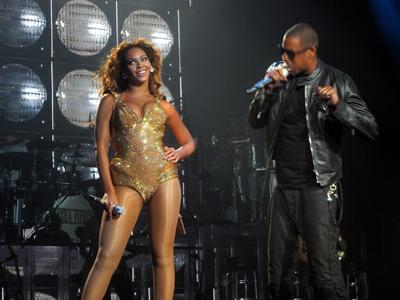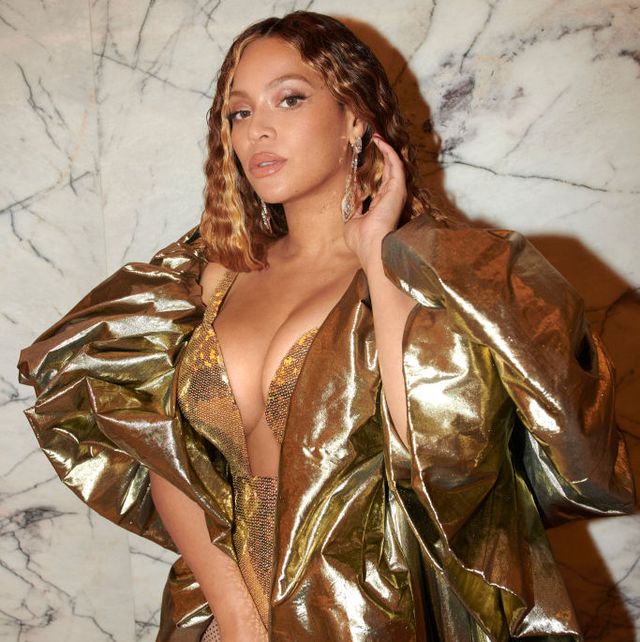“This ain’t Texas …” starts the refrain of a hot new country song called “Texas Hold’em.”

Written by a woman who was born in Houston, it’s a catchy tune that has skyrocketed up the country music charts since the moment it dropped. She debuts the song wearing a cowgirl hat and there’s even a line dance to go with it already.
Seems pretty normal, right?
Except it’s not, because that woman is Beyoncé, an African-American, female, multi-billion dollar pop mega star — and her new song has caused shock waves in the industry and a backlash that, while disappointing, is hardly unexpected (sigh).
Why? Well, that’s a good question.
So we’re going to talk about it, but know up front I am aware some of us are tired of this issue since it’s been covered in so many other media sources lately, but in all honesty as a female writer in the ag industry, I can’t in good conscience ignore this. So here we go.
In order to collect my thoughts on this in a comprehensive and orderly way, I’m going to lay it out in sections here.
Some confessions first:
One, yes, I do like the song. I think it’s catchy, and I’m a fan of a boot-tapping beat.
Two, no, I am not a rabid Beyoncé fan by any means. I generally like her stuff, but I can probably only name like three songs of hers off the top of my head, and I’ve never been to one of her concerts.
Three, while I love country music, I am an equal opportunity music fan. I listen to music from so many different backgrounds — country, pop, rock, reggae, etc. — my playlist has multiple personalities, and I like it like that.
Four, if you don’t like the song, that’s fine, you’re absolutely entitled to your opinion and your preference in music, of course; but it’s important we cover here why there’s been such a strong reaction to the song — both positively and negatively.
All right, so then, let’s get to the rib meat of the issue of the latest controversy to hit the charts:
First, the country music industry has a lack-of-diversity problem, both in gender diversity and in cultural/ethnic diversity, and is well known for largely being an old white boys club (or a bro country frat house, depending on the age of the man).
This is not my personal opinion, nor is it in dispute, as it’s been written about extensively over the last several years (you can Google this) and the statistics back it up.
According to a recent article, “Does U.S. Country Radio have a Woman Problem?” written by CountryTown.com, “The 2023 Country Billboard Air Play Chart shows that 88.5% of country music artists were solo male artists, while only 5.75% were solo female acts.”
Traditionally, it’s been harder for women in the country music industry than their male counterparts. Although trailblazers like Patsy Cline and Loretta Lynn achieved success in the mid-20th century, and there was a brief surge of strong women artists on the country charts in the mid-1990s (Faith Hill, Trisha Yearwood, Shania Twain), they were often exceptions rather than the rule.
The industry’s gatekeepers historically favored male voices, relegating many talented women to the sidelines. A glance at country music charts over the years reveals a striking gender disparity, with male artists consistently dominating the landscape.
Recent statistics highlight female representation remains disproportionately low, underscoring an ongoing challenge in the industry. Despite the undeniable talent of female musicians, the gender gap persists.
Second, while it’s hard for women in general to break through in this industry, it’s so much harder for African-American women or other women of color, than it is for white women.
The underrepresentation of women in country music extends beyond gender to include a lack of racial diversity. There remains a notable absence of artists from diverse racial and ethnic backgrounds.
Breaking through these barriers, rare artists like Mickey Guyton, an African-American woman, have challenged the status quo, using their voices to broaden the genre’s scope.
So when a woman of color drops a hot beat of a song that resonates so well with enough people to immediately make it chart at the top of the country music billboard, you’d think it would be celebrated for the small miracle it is!

And it has been, in so many places. But for so many others it’s been a reason for bitter complaints instead.
Third, so why the backlash?
Let’s break it down honestly.
To start, most people who don’t like it are claiming that since she’s a pop star, she shouldn’t cross over from her main music genre into country.
But wait, haven’t a bunch of men crossed over from pop/rock to country with a successful hot single over the last few decades and the last few years? Like John Denver, John Cougar Mellencamp, Darius Rucker, Kane Brown, Charlie Pride, Kid Rock, Lil Nas X and Jelly Roll, just to name a few.
So, is the problem that she’s a woman? Well, several women have done that too. Sheryl Crow came over from pop/rock into country in 2002 with her release of “Picture.” Jewel debuted on the country charts in 2008, after being a folk pop/rock artist.
More recently, Casadee Pope, Elle King, Maren Morris and Kelsea Ballerini all successfully blend country with pop beats and rock undertones. Taylor Swift has of course obliterated her own line between country and pop, as her songs are played uber successfully on both charts. Ditto for Carrie Underwood.
Is it that country music is undeniably dominated by those who are presenting as Caucasian/white? Yes, this is true and country music’s lack of diversity has been written about extensively in the last several years — but it’s also true our previously mentioned list of men who entered country from pop/rock includes some who are of African-American or mixed African-American ancestry.
So, what is it?
The true answer is — it’s all three.
It’s that Beyoncé is a female, African-American, mega pop star who dared to not just dip a toe into the country music pool, but to dive in, flawlessly, headfirst.
When her new country song landed at No. 1 on the Hot Country Songs chart on Feb. 20, some people lost their minds. (Google this if you haven’t caught some of it already, you’ll see what I’m talking about).
Why? Well, she’s essentially the perfect storm (just call her “Hurricane Bey”) for an industry that has not adapted fast enough to the overall changing diversity climate in the U.S.
She’s proved despite the odds, it’s possible for a female, African-American, mega pop star to choose to return to her Texas roots and write a super successful country song that a lot of people are into. Like, a lot a lot. You don’t top the charts without millions of listeners loving, requesting and downloading the song.
This is a change for the industry, though, and judging by the negative comments online, some folks just don’t take to change well.
It’s OK to personally not like a song, or to choose not to listen to it, but it’s not OK to tear the artist down or disparage the song just based on the gender and race of the person singing it.
It’s not a good look for an industry which is (ironically) supposed to cater to all country folks.
Does the industry (and these complainers) know African-Americans, Hispanics, Native Americans and women also live in the rural countryside? That not all country music fans are white country boys driving lifted trucks? And that occasionally the rest of us might want to see a song written or sung by someone like us?
Well, they know now.
Beyoncé has made sure of that.
Maybe at some point the tide will change and country music will become a bit more friendly to women and people of color.
Maybe.
Here’s hoping.





